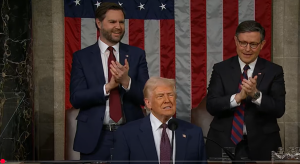James E. McMillan, Esq. is a New York attorney who has been at the forefront on matters relating to intellectual property and the entertainment industry. Here he discusses the future for online content creators as changes are constantly occurring under the recently appointed Donald Trump.
Amongst the lesser known of Donald Trump’s new appointees is Ajit Pai, whom the US President recently tapped to head the Federal Communications Commission (FCC) and who has promised to abolish the regulations that ensure net neutrality (the concept that internet service providers [ISP] should allow the same access to all content regardless of where that content originates). A former lawyer for Verizon, Pai has built a reputation as a hard-liner on conservative interpretations of telecommunications law and the FCC's limited authority. In fact, Pai has openly disagreed with the net neutrality rules enacted under the Obama administration and has made the repeal of net neutrality rules one of his top priorities. This policy promises to have a profound effect on the entertainment industry where the principles of a free and open market will directly clash with the rights of intellectual property holders (e.g., content creators).
Originally coined by Columbia University’s Media Law Professor Tim Wu, “net neutrality” was initially proposed to protect a free market and discourage discrimination by ISPs. Net neutrality rules encompass competition issues. They centre upon the FCC's policy to classify ISPs as "utilities" and subject them to rules akin to those placed on phone services.
In his 2002 article, "A Proposal for Network Neutrality", Wu suggested striking a balance that would forbid broadband operators, absent a showing of harm, from restricting what users do with their internet connection. At the same time, it would give the operator the freedom to manage bandwidth consumption. Wu recognised an upcoming problem where ISPs could potentially discriminate by treating network traffic differently on the basis of certain characteristics. Wu’s proposal sought to prohibit an ISP’s ability to single out a website and slow ["throttle"] the speed of network traffic to that website; it would forbid users from receiving traffic from that website through adhesive contracts or simply program network equipment to block access to the website.
Recognising this issue, in 2015, the Federal Communications Commission (FCC) approved net neutrality rules that were intended to keep the internet open and fair. The rules prevent ISPs from deliberately speeding up or slowing down traffic from specific websites and apps. In essence, they prevented ISPs from playing favourites. For instance, an ISP like AT&T could potentially allow its own video content to load faster than competing content on a service like Netflix or Hulu. Or, it could force Netflix or Hulu to pay a premium to get its content into the ISP's fast lane - a cost that would undoubtedly be rolled down to consumers.
What are the proposed changes to the net neutrality laws/regulations?
In October 2016, right before Trump was elected, the FCC enacted rules that would have required ISPs to get the user/owner’s permission before collecting and sharing their data on everything from web browsing history to geo-location information. These rules have not, as yet, gone into effect.
More recently, Republican Senator Jeff Flake, one of the leading opponents of net neutrality rules, argued that such regulations are "unnecessary" and "innovation-stifling”. To that end, the Senate passed Joint Resolution 34, taking direct aim at Obama-era net neutrality rules. If passed by the House, ISPs will be allowed to sell user data to third party companies without consumers’ permission. While today, in order for personal data to be sold, ISPs must get user permission by requiring that the user "opt-in," the repeal will no longer require that ISPs obtain that consent. In fact, in order to protect one’s privacy, one must specifically "opt-out". This has significant implications as it will allow ISPs to pair subscriber data to content and build up online advertising businesses to compete with companies like Google and Facebook.
How would/will these changes affect artists?
ISPs like AT&T and Verizon claim that they are being disadvantaged by net neutrality rules. They argue that the FCC's net neutrality rules go far beyond its authority and consequently hurt their businesses. Yet, the repeal of such rules will have a significant impact on content creators and owners of online intellectual property – many of whom might fall under the category of “the little guy”.
Net Neutrality rules were enacted to allow equal access to content on the internet. If the rules are changed, content creators could be discriminated against depending on their content and their use of bandwidth. Content creators clearly benefit from an "open internet", where policies such as equal treatment of data and open web standards allow those using the internet to seamlessly search for, buy, share and stream content without interference from a third party. Conversely, a "closed internet", where large corporations or governments favour certain uses or certain content, restrict access to certain websites, throttle bandwidth to promote their own content or simply filter out certain content, could be stifling to artists.
Pai may have a difficult road ahead, as the United States Court of Appeals for the District of Columbia Circuit upheld the government's position on net neutrality rules in a 2-to-1 decision from a three-judge panel just this past year. This could mean a long legal battle if Pai tries to discard the existing rules.
Artists and other online content creators would be wise to stay abreast of these issues and do all they can to prevent modifications to or the removal of net neutrality rules that might limit their ability to compete fairly.




















